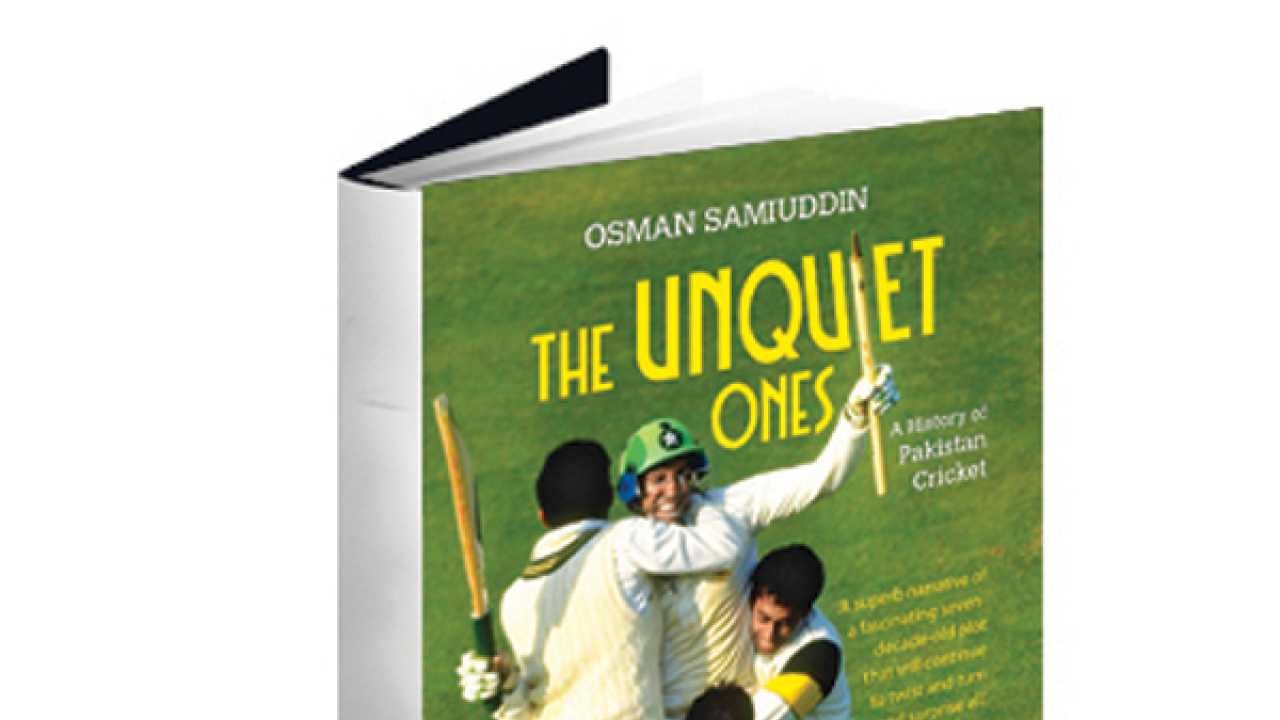
Book: The Unquiet Ones: A History of Pakistan Cricket
Author: Osman Samiuddin
Publisher: Harper Sport
Pages: 480
Price: Rs543
There cannot be a more vibrant cricket team than Pakistan. Whatever they do on the field or off is heard aloud. How often have we seen their cricket administrators change at the drop of a hat? The team is grossly inconsistent, touching lofty heights one day, only to fall the next. They lose as easily as they win.
While Pakistan has produced many great cricketers, it's known for churning out greater characters. For any follower of the sport or even a journalist, to put together the history of cricket in the turbulent country is not easy.
But Pakistani cricket journalist Osman Samiuddin has done a commendable job of chronicling the ups and downs of cricket in his country in The Unquiet Ones: A History of Pakistan Cricket. His works are popular through ESPNCricinfo, Wisden Almanack, and various other publications.
Samiuddin's writing is lucid. The 38-year-old has done extensive research, spending a month at Nehru Library in New Delhi and interviewing 103 people connected with Pakistan cricket for the book. Many quotes are in Urdu (with English translations), and this adds to the essence of Pakistan.
Samiuddin has also quoted from Abdul Hafeez Kardar's (Pakistan's first influential cricketer and first post-Independence captain) three tour diaries and his other books and newspaper columns, besides a host of others.
The Unquiet Ones: A History of Pakistan Cricket is segregated into five sections according to the different eras that define Pakistan cricket.
Beginning with Pakistan's first major victory — the famous Oval win in 1954, courtesy Fazal Mahmood's six wickets in each innings — Samiuddin takes one through a journey of the initial club cricket in Karachi and Lahore from the pre-Partition days.
Wherever possible, Samiuddin has given an Indian connection and interesting pieces of information, such as Lala Amarnath learning his early cricketing lessons at Minto Park in old Lahore and our stylish all-rounder of yesteryear Salim Durrani's father Abdul Aziz Durrani rubbing shoulders with Ranjitsinhji and Duleepsinhji. Also the little-known fact that Javed Miandad is a muhajir (people who went to Pakistan from India during the Partition), and that his father was in a police department posted near Ahmedabad and Baroda.
While we've known about player conflicts in their team — Imran Khan vs Javed Miandad, Wasim Akram vs Waqar Younis, etc., these ego clashes were present in the '50s too — Kardar vs Mahmood, for one.
Samiuddin devotes entire chapters to the most influential players in Pakistan cricket – Kardar, Mahmood, Imran Khan and Miandad, to name a few.
The book however, is not without a blemish. For instance, while talking about Sarfraz Nawaz's exploits, he writes: "Australia fell from 305 for one to 310 all out" in the second innings of the 1979 Melbourne Test best known for the speedster's 9/86. Actually, the Aussies slipped from 305 for three to 310 all out.
Samiuddin has also missed out on curious facts, like the top two youngest Test cricketers being from Pakistan. While Mushtaq Mohammad figures prominently in the book for his cricketing feats, there's no mention about his Test debut at 15 years and 124 days. Nor is there a mention of the schoolboy Hasan Raza, who debuted at 14 years and 227 days.
The initial part of the book deals with Pakistan's political history and its impact on cricket there. This may not appeal to the average cricket fan. If you can see off these early chapters, the book gets interesting as it talks about, among others, Imran, Miandad, reverse swing, Sharjah, match-fixing, spot-fixing, taped balls and Mohammad Amir, not to mention how Imran led the side to their greatest triumph – the 1992 World Cup.
Considering that Samiuddin hasn't missed much about Pakistan cricket and keeps the reader glued to his book, he's scored a well-crafted century on debut.